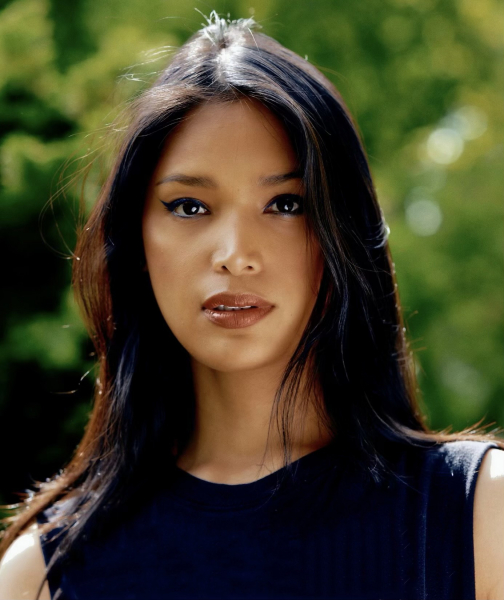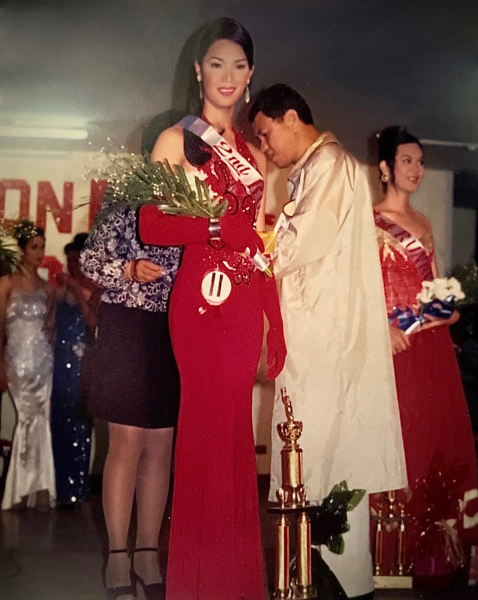An Interview with Geena Rocero, Author of “Horse Barbie”
To celebrate National Coming Out Day and Filipino American History Month, ABA’s Advocacy Associate Manager spoke to transgender fashion model Geena Rocero about coming out, being “stealth” as a model, and her memoir, Horse Barbie.
ABA: October 11 is National Coming Out Day, and you have one of the most epic coming-out stories of all time. Can you talk about coming out on the TED stage and what led you to that moment?

Geena Rocero: I've been out [in the Philippines] from a young age, so for me, the journey to get to that TED talk is complicated. I was 30 years old, and I decided, “I'm about to enter a new decade, and I've had enough of suffering, of paranoia.” It got to the point where it was really, really dark, and there was no other way for me to go forward unless I really dealt with it. And carrying that burden emotionally had manifested in physical sickness. I was finally like, “I can't do it anymore.”
I was in Tulum, and as soon as I said the words that I wanted to come out [publicly], hundreds of sea turtles were born [on the beach around me]. I don't know a better cosmic sign than that. So I listened to it, and it was night and day. I went from extreme paranoia to the opposite extreme: I'm going to come out on the biggest stage in the world and become an unapologetic trans person.
ABA: In some ways, you had already “come out” as a young person in the Philippines discovering yourself as a transgender woman. What did that process mean to you?
GR: First of all, the concern of coming out is safety. It's different for everybody. When are you ready to do this? What's the support system like, in all aspects — coming out within yourself, the interpersonal relationships with family, at work, in your immediate social environment? And as an immigrant, trans Filipina, there was another layer: coming out of the shell of a colonial mindset.
When I moved to America, I realized that I needed to come out of the burden of that colonial mindset and how I grew up in the Philippines. When I hear from Filipino Americans [about Horse Barbie], how they appreciated my process of decolonizing my mind, that's a version of coming out that I find even more powerful. I expected to hear from queer folks, from trans folks, but to hear from Filipino Americans — it makes me feel good, it validates what I was going through. It was difficult. It was long. It challenged so many norms. And in some senses, I was also challenging how my parents raised me.
ABA: One of the things I love about Horse Barbie is the way you illuminate the differences between trans people in society in the Philippines versus in the US. What were the main differences you experienced between being trans in the Philippines and the US?
GR: I was so out and proud in the Philippines, in the biggest sense. I became the most famous trans beauty queen [at the age of 15]. But I was also aware that I could never be legally recognized as a woman, and that my documents would always [reflect] that. To this day, I can't believe that was even possible. That was the limit of that mindset that I had. When I moved to America, thank God I had a trans Filipino American community in San Francisco — from the AAPI Community Wellness center to my friends — that took me in, loved me, and insulated me in that welcoming environment.
However, the moment I went outside of that, it was a different story: an environment, a culture, of shame, of dehumanization, demonizing, othering, particularly in the media. I had just won the biggest trans beauty pageant [in the Philippines,] where there were [trans] pageants on national television. I had acted in a TV-movie. I was a media presence. So when I moved here, it was like, “What is this?” America promised me freedom through that “F” marker [on my ID], but instead I got shame.
ABA: The American Booksellers Association is extremely worried about a rising number of book bans in the US, many of which target books with LGBTQIA2S+ characters or themes, racially diverse narratives, or the history of colonization. How important was it for you to see other trans people thriving when you were growing up?
GR: In the Philippines, the confidence I got came from the world of trans beauty pageants. My trans mother, Tiger Lily, took me in, basically discovered me, and changed my life. Beauty queens were the first representation that I saw. I was eight years old, seeing the first trans beauty pageants in our neighborhood, and seeing another trans woman on stage looking so beautiful was a reflection. For the first time, it made sense, what I was already feeling at eight years old, and seeing them on stage gave me a sense of — ”Oh, I am them. Of course I am them.” It confirmed it.
And this tracks from being in the Philippines to when I move to America, particularly in New York City. Caroline Cossey, [a.k.a., Tula, a model and “Bond girl” who was outed as trans by a tabloid in 1981] has been a story since I was still in the Philippines. My trans mother showed me her picture in the tabloids, so you might consider her as my first global idea of representation from a Western lens. But also because I saw her in a tabloid, and how she was treated, she was also a sense of caution. I was definitely dealing with that complicated existence: you’re wanted, but be careful.
ABA: Finally, on this National Coming Out Day, is there anything you’d like to say to our readers?
GR: I hope that, whether you're trans or not, what resonates is the pursuit of your version of authenticity. If you're someone questioning anything in your life — your career, your love, your spirit, your place in the world — I hope because I pursued this in Horse Barbie, it resonates for you to pursue your own version.
[And to transgender youth:] Keep being who you are. Even in this moment, with what we see in the media and politicians who want to literally erase our very existence. In Horse Barbie, I share the long history, resistance, and beauty of trans and gender-nonconforming [people] since the beginning of time, particularly in Indigenous cultures. I want you to know that you, as a trans, gender non-conforming person, are following this path. You are in this path of beauty, resilience, and truth. So keep doing that. And of course, find your support system that wants you to be that.
I want to add that message, because I know it gives me a sense of peace. It gives me a sense of power, gives me a sense of motivation, gives me a sense of ownership of my journey and my story. Because we need to own this story.

